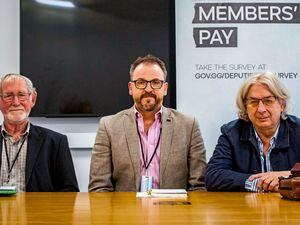Chancellor is keeping eye on mail order
THE island's mail order business is secure for now following UK Chancellor Gordon Brown's pre-budget statement.
THE island's mail order business is secure for now following UK Chancellor Gordon Brown's pre-budget statement. He confirmed that the £18 VAT-free threshold for imports from outside the EU would remain, but that the UK Government was keeping an eye on the situation.
Mr Brown said it would 'assess the case for reform to protect tax revenues and will take into account the wider public interest by balancing compliance costs on carriers and importers with the impact on UK-based retailers.'
'It was referred to as a shot across the bows and I suspect at this stage it should be seen as no more than that,' said Ernst and Young tax partner Graham Parrott.
'The Islands have done what has been asked of them both in terms of curbing the abuse of this, which was much more the case in Jersey, and limit its further expansion.
'Neither is the Exchequer likely to actually want to remove this from their own perspective. No doubt there will be some more dialogue, but provided the VAT lost to imports from the Channel Islands does not increase, the continued monitoring should be no more than that.'
But changes to controlled foreign company rules is likely to have an impact, said KPMG chairman Jonathan Hooley.
The Chancellor announced this as a result of the Cadbury Schweppes case.
'Draft legislation for inclusion in the next Finance Bill will enable UK companies to apply to Her Majesty's Revenue and Customs to disregard profits that arise from genuine economic activity in business establishments in other EU member states or certain other states in the European economic area,' said Mr Hooley.
'As the Channel Islands are in neither category, this potentially puts Channel Island companies owned by UK companies at a disadvantage to similar companies owned in those other areas.'
He added: 'Although the changes will require careful thought, there was nothing which was of immediate concern and in particular no further mention of reform to the basis of taxation for non-domiciliaries.'
Mr Parrott said the change was not entirely unexpected.
'There's a theory it could cause businesses to move from here to low tax EU states but I suspect it is very limited because there are too many costs and other issues.'





